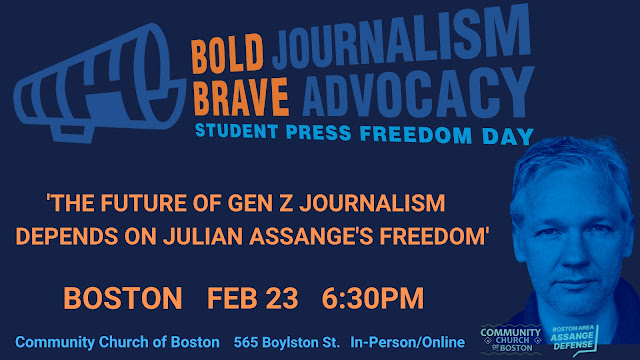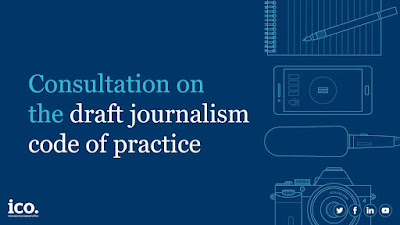On February 12, the UK Supreme Court
allowed a claim of environmental catastrophe by 40,000 to 50,000 Nigerian farmers to proceed in English courts against defendant Royal Dutch Shell. The ruling came just two weeks after farmers
prevailed in a significant but more limited case against Shell's Nigerian subsidiary in a Dutch appellate court in The Hague, after 13 years of litigation, and eerily echoes the still unfolding saga of the Chevron-Ecuador battle over Lago Agrio in the Amazon.
I'm compelled to mention the UK case, though it has been covered exhaustively in the media (e.g., N.Y. Times), because I wrote just last week on the controversial scope of "alien tort" liability in U.S. courts. The case against Royal Dutch Shell ("Shell"), for devastating oil pollution in the Rivers State of the Niger Delta, is a kind of alien tort case in UK and Dutch courts. In the UK, no specific statutory authorization is required to sue Shell, which is incorporated in the UK and headquartered in The Hague. Rather, jurisdiction may be invoked upon the plaintiffs' demonstration of a duty in common law tort owed by the defendant company.
The UK ruling is preliminary only; the court held that the plaintiffs demonstrated a "real issue to be tried," the preliminary standard, over the role of Shell in the pollution. The nub of the problem for the plaintiffs is that operations in Nigeria were run by, and not exclusively owned by, a subsidiary corporation of Shell, the foreign-registered Shell Petroleum Development Company of Nigeria Ltd. (
SPDC).
The corporate shell is designed specifically to insulate the parent company against liability for the conduct of the subsidiary. To penetrate the shell and reach the parent, the plaintiffs must show that Shell, the parent company, directed the conduct of SPDC, the Nigerian subsidiary, or worked jointly with SPDC. The court in The Hague allowed jurisdiction upon a comparable control theory in 2015, though ultimately entered a monetary judgment only against SPDC.
The preliminary ruling from the UK Supreme Court does not yet establish direction or joint control, but says that the plaintiffs have made a sufficient showing to serve their lawsuit on Shell. Rather than digging into the facts, the Supreme Court faulted the courts below, both the majority that had rejected the plaintiffs' claim and the dissent, for looking too closely at the plaintiffs' evidence and effecting a sort of "mini-trial" on the question of Shell control before the case has even been pleaded properly.
Environmental damage and human toll in the developing world as a result of resource extraction by western corporations is, sadly, not a new problem, and the UK Supreme Court invoked its experience in a prior case. In 2015, plaintiffs in Zambia
won the right to sue UK-based Vedanta Resources upon allegations that copper smelting had poisoned the water supply with "rivers of acid," containing sulfuric acid and other dangerous toxins. The cooper operation in Zambia was owned by a Vedanta subsidiary, Konkola Copper Mines. After the Supreme Court
allowed suit in England, Vedanta
settled with more than 2,500 Zambian claimants.
Vedanta was decided in the spring of 2019, and only then, after the lower courts had rejected the claims against Shell, did the Supreme Court admonish judicial restraint on questions of fact in preliminary proceedings and set out an approach to analyze parent-company duty: "depend[ing] on the extent to which, and the way in which, the parent availed itself of the opportunity to take over, intervene in, control, supervise or advise the management of the relevant operations (including land use) of the subsidiary."
In pleadings and on appeal, the plaintiffs asserted a dozen bases in fact to demonstrate Shell control of SPDC, including mandatory compliance standards for subsidiaries on health, security, safety, and environment; business principles; and best practices for assets, facilities, and infrastructure. According to the plaintiffs, "[Shell's] executive remuneration scheme depended to a significant degree on the sustainable development performance of SPDC." The plaintiffs alleged that Shell "for many years had detailed knowledge about widespread pollution in the Niger Delta caused by spillages and leakages of oil from infrastructure operated by SPDC, including knowledge of the frequency, location and size of oil spills, including its failure to protect its oil infrastructure against the risk of damage caused by the criminal acts of third parties."
According to the New York Times report on the case, Shell is retreating from investments in the Niger Delta and other sites near human habitation, preferring to drill offshore. Meanwhile, disputes endure over responsibility to clean up the pollution left behind by extraction and over the efficacy of cleanup efforts. In this way, the Nigeria case is strikingly similar to others in the world, notably, the long-running dispute between rain-forest communities in Ecuador and oil giant Chevron, successor to Texaco.
In the case against Chevron, an Ecuadorean court in 2011 ordered Chevron to pay $9.5bn to residents of Lago Agrio, a community in the Amazon, for catastrophic oil pollution there. In 2014, a U.S. federal court ruled that the judgment was procured through fraud, and the plaintiffs' champion U.S. attorney, Steven Donziger, was disbarred in 2020. The plaintiffs' efforts to collect on the award in courts with jurisdiction over Chevron assets in other countries, such as Canada and Argentina, have failed so far. Donziger is appealing his disbarment while also facing contempt prosecution in New York. Celebrity environmentalists continue to hail him as a hero, railroaded by Big Oil. Meanwhile a district court in The Hague has demanded (subscription), pursuant to arbitration, that Ecuador nullify the judgment, and the matter continues to haunt Ecuador's destabilizing presidential elections.
For the third time, I'm having my comparative law class read Paul M. Barrett's
Law of the Jungle, which chronicles the Chevron-Ecuador matter until the book's 2015 publication. For my money, Barrett's is the most even-handed account out there. (
See also coverage by Michael I. Krauss for
Forbes.) And it's not flattering of Donziger. But it's also not flattering of Texaco.
The complicated truth of what happened at Lago Agrio is a tragedy in multiple dimensions, generating plenty of blame to go around. Donziger might have played fast and loose with the law in Ecuador, after being rebuffed in the United States, but he was navigating the outstretched hands of a sorely corrupt judiciary. The devastation at Lago Agrio is real, and no one, oil firms or government, has ameliorated it. At the same time, much, if not most, of the pollution can be traced directly to the national oil company of the Ecuadorean government, which at various relevant times bore exclusive or joint responsibility for Lago Agrio. Even insofar as Texaco controlled the site, government regulators, also riddled with corruption, were utterly derelict in their duty to protect fundamental human rights and enforce industry norms. To date, the people of Lago Agrio, maybe the only innocent actors in the whole story, have been left to struggle with the horrific health consequences and daily challenges of water and land contaminated by lethal toxins.
In Nigeria, Shell and SPDC also lay blame on the Nigerian government, a partner of SPDC in the extraction operation through the state-owned Nigerian National Petroleum Company. I have no doubt that the government bears responsibility both for what it did as an owner and what it did not do as a regulator. I wager that Shell and SPDC, like Texaco and Chevron, are guilty of conscienceless exploitation, but also behaved as rational corporate actors, splitting the difference between the costs of malfeasance and the benefits of non-regulation. Like in Lago Agrio, the people of the Niger delta are left to endure the consequences of symbiotic opportunism, while the perpetrators point their fingers at each other.
Maybe the concept of "alien tort" in the UK is turning the tide at last. One might expect Shell to follow Vedanta's example and settle, for public relations reasons, if nothing else. Reuters
reported that Shell settled another Niger Delta pollution claim in British courts in 2015 for €70m. Shell has consistently pledged to clean up Niger Delta pollution, even while disavowing responsibility. But Shell did not settle the case in the Netherlands, where the company has been able to postpone liability for 13 years to date. The AP
reported that two of four farmer-plaintiffs died since the case there was filed in 2008. An appeal to the Dutch Supreme Court may yet be filed, and Big Oil might be emboldened by Chevron's experience.
If Shell digs in its heels in the UK, the plaintiffs have an uphill battle ahead. They will have to produce clearer evidence to persuade the trial court that Shell exercised control at the local level, and then to link Shell oversight to the pollution in proximate causation. Shell, fairly, will seek to muddle the chain of causation with the intervening actions of venture partners, private and public, and the third-party actions of criminals who sabotaged and burglarized the oil pipeline. The Dutch appellate court mitigated the plaintiff-farmers' win there by nullifying defense liability in part for the actions of saboteurs, even while recognizing with regard to one claim that SPDC made nefarious access to the pipeline too easy.
If ever there is a settlement or award for plaintiffs that turns ripe for enforcement, it will remain to be determined how effectively money can be converted into remediation in a legal regime whose wavering commitment to the rule of law has been complicit in damage to the Niger Delta environment for the six-decade duration of the nation's independence. To the plaintiffs' favor, for now, in the UK, their case is informed by their experience in The Hague, where the trial court afforded plaintiffs latitude to probe Shell files for evidence of corporate control.
The case in the UK Supreme Court is Okpabi v. Royal Dutch Shell Plc, [2021] UKSC 3 (Feb. 12, 2021). Lord Nicholas Hamblen delivered the opinion, with which Lord Hodge, Lady Black, and Lord Briggs agreed.



























